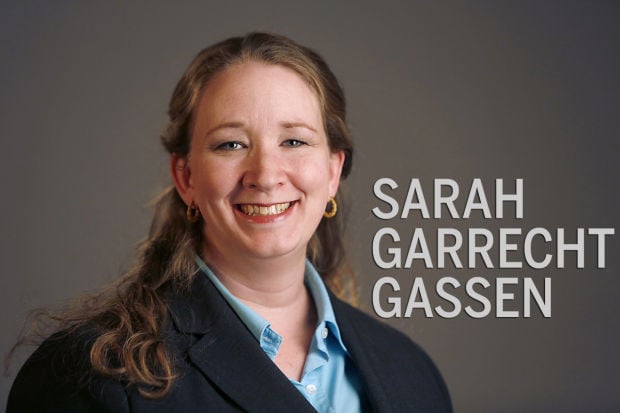The kinetic level of a first-grader is affected by multiple outside forces. The wind. Glitter. Proximity to a holiday. Proximity to a holiday that involves 1) candy 2) presents. Wiggliness is quadrupled if the holiday involves candy and presents. Pencils with new erasers. Pencils that need sharpening. Need of a tissue. Chairs that swivel.
All of these forces combined last Thursday morning, making for a very chatty visit to the first-grade pod at Walter Douglas Elementary School.
Stacks of wrapped books piled on the first-grade teachers’ desks and filing cabinets, sharing limited space with cookies, treats, worksheets, textbooks and holiday decorations. Not every family in this Flowing Wells neighborhood can afford a Christmas at home, but every Walter Douglas student will receive something special at school.
Teachers often pay for these gifts out of their own pockets. And it’s not something that happens only at Walter Douglas. Many public school teachers do this for their students.
Being able to share time with these kids has been a gift for me. Not the kind you can show someone, but the kind that sits inside you and grows.
These small humans are full of life and energy and learning. They’re sponges, for good and bad. Most are only 6, and some have already experienced tough times. Usually the teachers send me students with specific reading, writing or math assignments, but sometimes a child just needs a little individual attention. A parent has left home, or they’re having a hard time staying awake. They read, sometimes talk. I listen.
Grown-ups can talk about socioeconomics and standardized testing and achievement gaps and funding formulas all we want but when it comes down to it, schools are places for kids. Places where fires are lit for the future, where ideas are wrestled with and learning should be a challenge but never a chore.
Places for the first-grader I’ll call Olivia, a girl who adores letters and sounding them out. She wants to learn how to read and spell enough words to be an author. She’s been talking about it since we met in August, and she’s still set on it.
I have a good idea for a story, she says. She’s matter of fact, not showy. She doesn’t like to talk about it, you see, because her story isn’t done in her head yet. I’m the same way — if I talk about what I’m writing before the words are through my fingers, then it feels like they go away somehow.
She nods. Two writers talking shop.
Plus, she says, she needs to learn how to write the words.
She says she’ll tell me a little bit. “Once upon a time, there were the ABCs.”
Oooooo. You can take that story anywhere. I’d like to know more about what happens. Will you tell me more when you’re ready?
She smiles. Her eyes twinkle. Yes.
She turns back to the book we’re reading. She sounds out words like “look,” “book” and “puppy.”
Last Thursday we sat down and she took out the book her teacher had selected for us to read, one about a dog named Biscuit and his people.
Olivia was full steam ahead. She read the story but had more — a lot more — to say about it. Did you know that dogs or cats or another kind of pet you might have at your house can help you with Christmas things? But not like a person, because a dog or cat is not a person and so they don’t have hands like a person does, but they could hold a present in their mouth and carry it for you maybe. You have to make sure they don’t eat it.
Did you know that sometimes people put things they have at their house on their Christmas tree if they don’t have money for decorations and sometimes people put clothes or other things that are important to them on their tree? They do that because they want a tree that is pretty but they don’t have money for new special decorations. Sometimes people do that. When they can’t afford decorations.
The Biscuit story includes the word ‘mittens.’ This happens fairly often in books, including curriculum books, I’ve noticed: They include things that Tucson kids don’t have much of a frame of reference for —sleds, snowmen, blizzards.
Can you tell me about mittens?
Olivia nods. Takes a moment to collect her thoughts.
Mittens are what you might have if you sometimes go to Mount Lemmon or sometimes if it’s cold someplace and you don’t want your fingers to be cold and sometimes you put your thumb in first and fold your fingers down because sometimes the mittens are small. But they’re not like glubs. Mittens are different than glubs. In glubs your fingers are by themselves but in mittens they’re all together. But they’re kind of like glubs because they keep your hands warm.
We get back to reading. She stops at ‘way.’ She slowly sounds it out but keeps coming up with it sounding like ‘why.’ We talk about how ‘Y’ can have different sounds, depending.
It’s confusing, we agree. Olivia pauses. She loves saying letters out loud until they meld into a word.
She gets very serious and leans in and looks straight into my eyes. Her small index finger is still on the ‘way’ on the page.
Sometimes Y’s just don’t make no sense.
She smiles. She’s right. Sometimes they don’t. Sometimes a lot of things don’t make sense. She’ll learn that. But for right now, Olivia’s gift of learning, the gift of loving words is everything.
Olivia’s story is just beginning.





